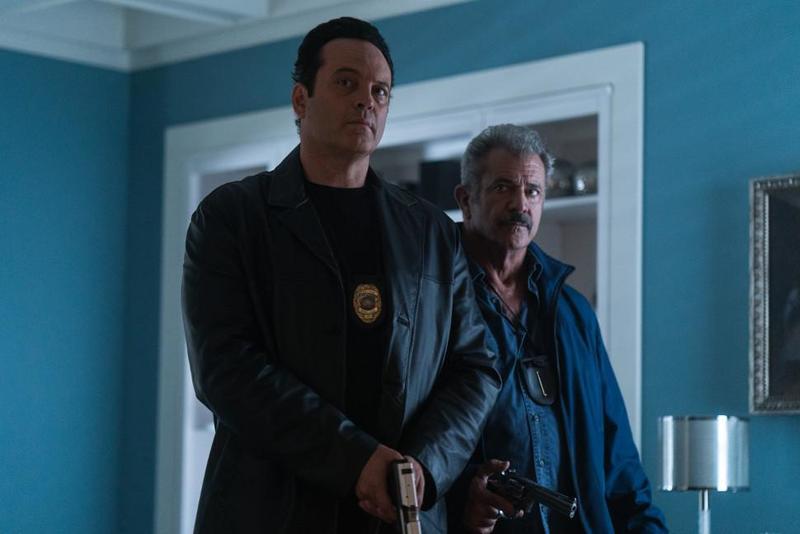The 21st century isn’t even old enough to drink and they’re already making movies about what a catastrophe it is. “Vox Lux,” the second feature from Brady Corbet, debuting in competition at the Venice Film Festival today, is a fable about pop stardom but it’s also a condemnation of what the writer Joe Carducci called “the pop narcotic” and an excoriation of fame and celebrity. It’s a bloody-minded answer film to “A Star Is Born,” which also premiered here.
Corbet’s 2015 “The Childhood of a Leader” was about individual character defects in relation to the totalitarian urge and the birth of fascism; in “Vox Lux,” the stirring emotionalism of pop product, while initially “healing” and heartening in its proposition of shared good feeling, is shown to curdle and rot into ovine idol-worship. The movie’s fictional pop star, Celeste, is first shown as a young teen survivor of a late 1990s school shooting. At a memorial service she and her older sister sing a song that becomes a meme, or as it used to be known in the late ‘90s, a pop hit. She is whisked from Staten Island to New York City where a street-smart manager proposes to shepherd her to stardom. The section concerning her teen years ends at a real-life terror act.
The movie takes up Celeste’s life again in 2017, on a day when she’s about to start a tour. The once wide-eyed teen is now a very brittle adult, with a teen daughter, a very poor relationship with her sister, who still collaborates on her music, and a bit of a PR problem. Over in Europe a quartet of gunmen has massacred a beach resort, all wearing the reflective masks that Celeste’s dancers sported in her very first music video back in the day.
Corbet, who co-wrote the script, goes very Karl Kraus/Oswald Spengler here, with a near-dyspeptic narration recited by Willem Defoe standing in for his own deep skepticism. That skepticism is not an absolute value, however. If you want to dismiss pop music as trash, you don’t enlist someone as talented as Sia to write the songs for your vision. They are solid Sia-esque songs, and the concert-film finale, while containing more than a hint of apocalypse, is designed, staged, and shot with a genuine acknowledgement of the seductiveness of pop goods, although in sections it clearly nods to Peter Watkins’ much more reactionary “Privilege.”
Natalie Portman is almost shockingly brittle as the adult Celeste, while Jude Law’s performance as the nameless manager is knowing without winking about it. The non-song score, by Scott Walker, who also scored “The Childhood of a Leader,” is typically widescreen magnificent/eccentric, no more than during a brutalist montage of Manhattan early in the film. (The extreme metal guitars heralding the movie’s sojourn to L.A. actually made me laugh out loud.) The press screening of “Vox Lux” this morning prompted some of the lustiest boos I’ve yet heard at Venice, and I understand why. But even while being anti-pop, this movie isn’t anti-pleasure; its craft is sumptuous and encompassing. This evening will bring the premiere of an examination of another 21st century catastrophe, the Steve Bannon inquiry “American Dharma,” directed by Errol Morris.

Speaking of provocations, given what an awful person Mel Gibson has demonstrated himself to be, merely casting him in a movie can be considered a form of stirring the pot. And casting him in “Dragged Across Concrete,” in which he plays a fairly overt racist, could be considered scab-picking. But here’s the thing: the role of police detective Brett Ridgeman is such a great one for Mel Gibson the actor that it might as well have been written for him. Now that I think of it, S. Craig Zahler, whose “Brawl in Cell Block 99” shook things up here last year, probably did write it for him, just as he probably wrote the role of Ridgeman’s partner, Tony Lurasetti, for Vince Vaughn, who starred in “Brawl.”
Now I’m a pretty firm believer that depiction does not equal endorsement, especially in crime fiction. I also believe that someone like Quentin Tarantino has often taken a little too much pleasure in pushing that idea to a certain point and then unpleasantly winking about it. But I do not agree with the reviews of “Dragged” that call it a right-wing fantasy. This Zahler film tamps down the outlandishness of “Brawl” (but doesn’t entirely dispense with it) and ushers in some Elmore Leonard the better to construct, with great patience and devilish craft (this is potentially one of the most engrossing 158-minute films you’ll ever sit through), a story of two criminal schemes that converge and go very wrong.
The movie begins with Tory Kittles as Henry, a young man just out of prison, enjoying himself with a sex worker who happens to have been a former schoolmate of his. The ex-con returns home to a dicey situation, with his mom neglecting his younger brother, who’s in a wheelchair for reasons we learn later. Henry’s not a criminal by inclination but economic desperation, and his next gig proves very ill-advised, and not just because he and his partner Biscuit have to disguise themselves a white security guards for it.
As for white guys Vaughn and Gibson, they’re suspended for excessive roughness after taking in a drug dealer, and their feisty conversation with a department bigwig played by Don Johnson gives all three performers the opportunity to smirk their way through some racialist comments and longings for the good old days. Is what they say objectionable? Yes. Are the characters more complicated than their objectionable dialogue? Also yes. Fed up with his lot, Ridgeman determines that he wants to find a criminal with a lot of cash, rip him off, and start a new life. Tony’s not sold on the idea but loyal to his partner. Long story short: man, do they find the wrong criminals to try to rip off. And they’re the same guys with whom Biscuit and Henry have thrown in.
This is a movie that puts you on the edge of your seat and then treats you to ten-minute scenes of two guys in a stakeout car eating egg salad sandwiches—and still keeps you on the edge of your seat. Zahler is a master of old-school cinema language: he’s simple but always spot-on in terms of camera height, composition (he really knows how to use widescreen), and linear coherence. And it all builds to a very satisfying conclusion.

While Vincent Van Gogh was a tragically troubled individual, spending some time in his world as conceived by Julian Schnabel proved something of a tonic at a festival whose films get pretty dark at times. “At Eternity’s Gate” is a fortuitous project for Schnabel for several reasons, including the fact that newly discovered information has made Van Gogh’s biography somewhat revisable.
But the two most exciting things about the picture are Willem Dafoe’s performance as Vincent, and Schnabel the painter’s application of the cinema eye to Vincent’s ecstasies, miseries, and visions. Defoe often goes full Jesus as Vincent, and even today few actors do beatific better. And long scenes of the artist in the fields of Arles, showing what Vincent saw when he painted, constitute a form of pastoral that’s increasingly rare in movies today.
Schnabel can’t make a film about an artist without introducing a stand in for himself, and here that function is filled by Oscar Isaac, playing Paul Gauguin, and exhorting Vincent to think more about the interaction of paint and canvas, while Vincent insists that he must work in a single gesture, that this is what is meant by “the ACT of painting.” It’s interesting to see an artist’s exploration of Vincent’s process, and Schnabel was smart to enlist the verbally eloquent Jean-Claude Carriére as one of his screenwriters. This is a great rebound for Schnabel the filmmaker, whose 2010 “Miral” was an unmitigated disaster. Gorgeously shot by Benoît Delhomme, the movie is not just a pleasure to watch, but actually puts forward some new ideas about van Gogh.












